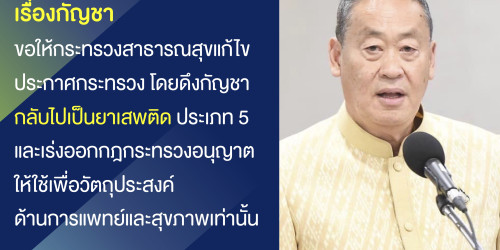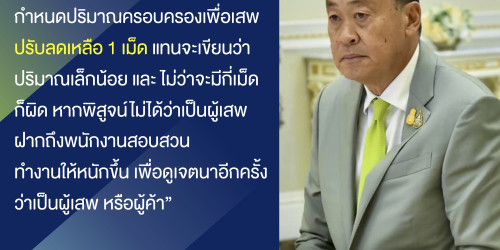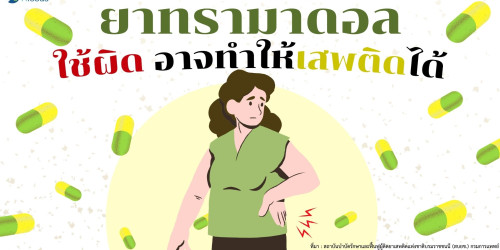While pleased with Thursday's decision by the prime minister to standardise treatments under state-run programmes, activists are urging the government to deliver and not drop its guard against this still deadly disease
HIV/Aids activists are hailing Prime Minister Yingluck Shinawatra's decision in a cabinet meeting on Thursday to merge medical benefits for those suffering from the disease. But they caution that treatment standards must be set and maintained once the merger goes forward.
After the cabinet meeting, Public Health Minister Witthaya Buranasiri said the nation's three main healthcare schemes the Civil Servant's Welfare Fund (CSWF) for civil servants and their family members, the Social Security Fund (SSF) for employees within the private sector, and the universal healthcare scheme (UHS) for people who are not entitled to the other two will all be working according to the same standards.
This would include medical treatment,drug formulae, information systems and the placement of medical units to ensure patients with HIV/Aids, as well as chronic kidney conditions, regularly receive medical treatment even when they change their healthcare schemes. However, there are few details on how this would be arranged.
Mr Witthaya said that there are 225,272 HIV/Aids patients receiving antiretroviral drugs in Thailand. Of these,148,357 patients seek treatment under the 30 baht UHS,46,114 patients are under the SSF,12,059 come under the CSWF, with the remainder seeking treatment under other healthcare schemes.
The Network of People Living with HIV/Aids, or NPL+, was at the forefront of the fight to convince the government to put one organisation in charge of administering lifesaving antiretroviral drugs to HIV/Aids patients and set a single standard for the treatment of HIV/Aids patients.
NPL+ chairman Apiwat Kwangkeow said that up until now, under the UHS antiretroviral drug treatment is only initiated when a patient's CD4(a type of immune cell which is targeted by the HIV virus) count drops below 200 cells per cubic millimetre of blood.But in 2010 the World Health Organisation recommended that antiretroviral therapy should begin at a CD4 count of 350 cells/mm3.
The CSWF scheme subsequently changed its policy and now starts antiretroviral treatment when the CD4 count drops to 350 cells/mm3. The SSF scheme also agreed to the change, but so far has not taken any action.
"At present, more than 500,000 HIVinfected persons are in the UHS database but only about 200,000 people with CD4 counts lower than 200 cells/mm3 are receiving antiretroviral drugs. Many are left untreated,"said Mr Apiwat.
It is believed that under the new policy all agencies will adopt the 350 cells/mm3 standard, but it may take time for the UHS in particular to upgrade its treatment capabilities and monitoring system. Mr Witthaya did not comment specifically on the CD4 issue on Thursday or on the administration of the new system.
LONG-TERM COMMITMENT
Statistics from the Public Health Ministry show that between 1984 and 2011 about one million Thais were diagnosed with HIV. Of this number, 376,690 went on to develop Aids and 98,721 of them have died. Throughout the world treatment with antiretroviral drugs has removed the perception that HIV infection is an automatic death sentence. In Thailand as elsewhere the number of new HIV cases and death rates of Aids patients are falling. But Thai HIV activists are cautioning that the government and healthcare agencies must remain vigilant against the still deadly disease. HIV/Aids treatment requires a long-term commitment from both the patients and healthcare providers. This entails continuous and lifelong medication,regular clinic visits and health monitoring,including keeping an eye out for side effects and drug resistance.
Sometimes patients are resistant to the normally prescribed drugs and others must be used, raising the costs, which the UHS says normally amount to about 870 baht a month per patient.
Research from the worldwide HIV surveillance programme WATCH indicates the rate of resistance to any antiretroviral drug among people who have never used antiretrovirals is 5.5% in Africa,7.4% in East Asia, 5.7% in Southeast Asia,6.4% in Latin America,11.4%in North America and 10.6% in Europe.
While the UHS and SSF have followed national guidelines for administering antiretroviral drugs, under the CSWF doctors have been free to prescribe any drugs they choose.There have also been allegations that doctors prescribe more expensive drugs to civil servants because they are reimbursed for the full amount by the comptroller general. In general, civil servants receive more benefits and better treatment because the comptrollers office covers all expenditures.
Under the UHS, HIV patients can get have a free blood check twice a year even if their health has improved.
Meanwhile, the Social Security HIV monitoring system has often been questioned. It allows for blood checks twice a year, but patients must pay 1,000 baht per test and extra charges are the responsibility of the patients. The CSWF allows for frequent blood monitoring tests.
Mr Apiwat said that frequent monitoring is needed to counter drug resistance. He also said that Social Security branch offices in each province set their own regulations, which may cause inconvenience to the patients.
Mr Apiwat cited the situation in Lop Buri province."HIV-infected workers have to go to the provincial hospital for antiretroviral drugs, even if they live and work in other districts. It costs them time and travel expenses.Why not let them get the drugs at the community hospital?" he said.
He pointed out that HIV-infected people need to take their drugs every day, and any disruption in treatment can be serious. A single system will be a great benefit to HIV/Aids patients in Thailand, he said, because they could all receive the same uniformly good treatment. Moreover, the collection of patients' data, counselling and monitoring systems, follow-up as well as evaluation will all be more efficient.
"When a person under the Social Security System resigns or retires from work, that person will continue to receive treatment without any disruption under the UHC because of the joint database system," he said.
Dr Sorakit Palicheep, director of the HIV/Aids service fund under the National Health Security Office (NHSO), also endorsed the standardisation of treatment for HIV/Aids patients, but said that during the past 10 years the government has not adequately emphasised or funded prevention of the disease.
"We focus on medical treatment,"he said, adding that in the past five years the NHSO has not done any prevention work because it has taken for granted that the Public Health Ministry is already responsible for the country's HIV/Aids scheme.
However, the NHSO did request a budget for prevention for this year and next year, but it was rejected by the comptroller general's office.
Medical treatment is one effective measure to reduce HIV infections, said Dr Sorakit, but increased treatment coverage is not a substitute for preventive measures to reduce HIV infections in the long term."The government should understand the significance of prevention and allocate a budget for it. It does not matter which agencies manage the work,"he said.
Supatra Nakaphew, who chairs an NGO committee working on HIV/Aids, agreed that prevention schemes such as education, counselling and testing, as well as condom distribution, must be conducted alongside the treatment programmes."Safe sex can tremendously prevent HIV transmission," she said, adding that a project to distribute male and female condoms is slated for next year.
HIV/Aids activists continually stress that the high infection rate among migrant workers is another issue that must be tackled. Dr Sorakit said that most legal migrant workers are entitled to benefits under the Social Security scheme, but registered migrant workers who entered the country illegally are required to purchase a 1,500 baht healthcare card issued by the Public Health Ministry, and it does not cover HIV/Aids therapies.
BANGKOK POST Issued date 24 June 2012
- 1 view








